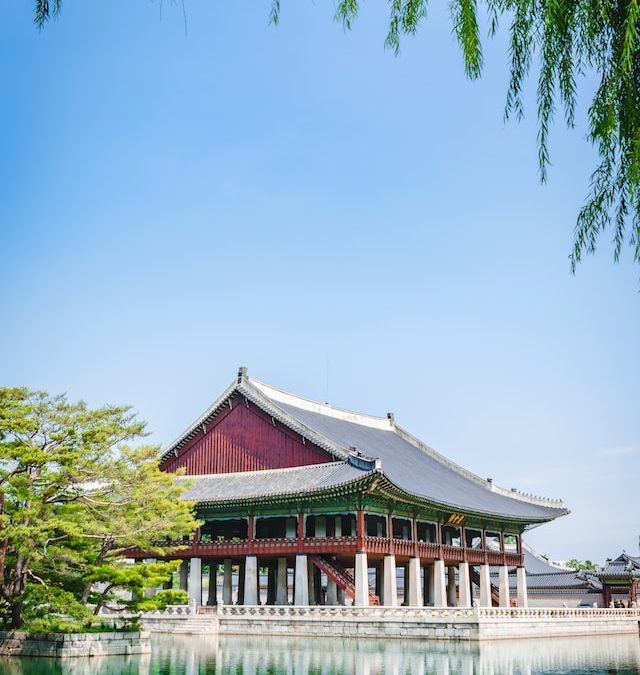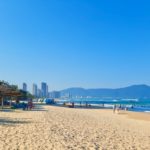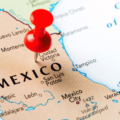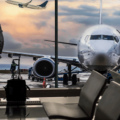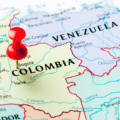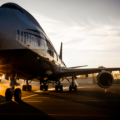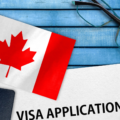Living in Seoul as a digital nomad
Venturing into the digital nomad lifestyle in Seoul, South Korea? You’re not alone. This bustling city is a hotbed for tech-savvy wanderers like you, thanks to its advanced infrastructure and lively expat scene.
In this guide, we’ll delve deep into everything you need to know from securing a visa to where to find the tastiest bibimbap. Ready to embark on your Korean adventure? Read on!
Key Takeaways
- Seoul offers several visa options for digital nomads, including the Digital Nomad Visa and the OASIS Startup and Trade Visa.
- Seoul has four distinct seasons, with spring being ideal for outdoor activities and winter offering picturesque snow-covered streets. Adjusting your work schedule around the weather can be challenging but rewarding.
- Popular activities for digital nomads in Seoul include visiting historical sites like Gyeongbokgung Palace, exploring neighborhoods for street food adventures, participating in K-pop culture, and enjoying Seoul’s vibrant nightlife scene.
- Gangnam is a popular area for digital nomads to live due to its upscale atmosphere and vibrant nightlife. Other recommended areas include Hongdae for its hipster vibe, Insadong for a more traditional feel, and Itaewon as an international melting pot.
- Finding an apartment or accommodation in Seoul may take some time and effort, but online platforms like Airbnb can help. Co-living spaces are also available as a community-oriented living setup.
- Seoul offers numerous coworking spaces and cafes with WiFi availability, such as WeWork Seoul, Hub Seoul, Maru 180, Coffee Libre, Google Campus Seoul, Starbucks Reserve Roastery, and Antwork Seoul.
- The cost of living in Seoul varies depending on factors like rent (around $700-$1k per month), groceries ($300-$400 per month), utilities ($100-$200 per month), internet ($20-$30 per month), public transportation ($50-$70 per month), entertainment ($200-$400 per month), and health insurance ($100-$200 per month).
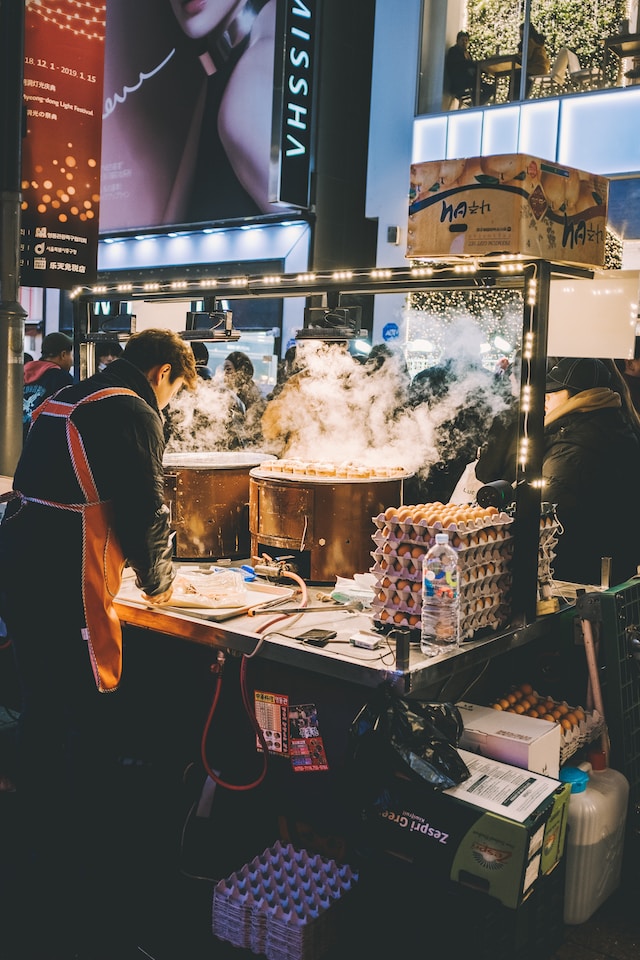
83-5 Myeong-dong, Jung-gu, Seoul, South Korea, Myeong-dong
Visa Requirements for Digital Nomads in Seoul
South Korea presents intriguing visa options for digital nomads eager to live in Seoul. Here are few you should be aware of:
- The Digital Nomad Visa: As of 2023, this permit is valid for up to two years and is specifically tailored for digital nomads. Key eligibility prerequisites include having a bachelor’s degree or above, being a founder of a corporation, and having high technical skills or intellectual property rights. Notably, an interesting requirement is that applicants receive training or education related to K-pop.
- The OASIS Startup and Trade Visa: This is another excellent choice for business owners, allowing them to live and work in South Korea for up to two years.
- The Stamp-On-Entry Visa-Free Option: This gives digital nomads a chance to stay in Seoul for up to 90 days without the need of applying for a visa beforehand.
- Working Holiday Visa Program: An alternative pathway could be South Korea’s working holiday program, designed primarily for those seeking an opportunity to travel while working remotely.
- Potential Digital Nomad Visa Developments: Although Seoul doesn’t officially offer a specific digital nomad visa yet, discussions surrounding its introduction hint at future possibilities for hassle-free stay procedures for remote workers.
Weather in Seoul – best time to visit
Seoul, the vibrant capital of South Korea, experiences a climate as diverse as its cultural offerings. It boasts four different seasons throughout the year that digital nomads should be aware of before packing their luggage.
As spring arrives between March and May, Seoul becomes a canvas splashed with blooming flowers under cheerful sunny days – an ideal backdrop for outdoor activities or simply lounging in one of the city’s local cafes.
However, brace yourself for hot and humid summer days if you plan to visit during this period. Temperatures often rise steeply providing an excellent opportunity for beach trips outside Seoul or visiting air-conditioned museums within the heart of this bustling metropolis.
On the flip side, winters in Seoul carry quite chill atmosphere with temperatures dropping sometimes to an average low of -5 to -7 degrees Celsius. However daunting it may seem to some remote workers, there’s something extraordinarily picturesque about snow-cloaked streets and warm street food vendors illuminating chilly nights.
Admittedly, adjusting your work schedule around Seoul’s variable weather can be challenging but equally rewarding. After all, every season delivers unique outdoor opportunities along with scenic transformations across various parts of the city like Han river banks or cherry blossom-laden paths – certainly worth experiencing when you’re not behind your laptop screen!
Top Activities and Things to Do in Seoul
Seoul is a city bustling with activities that cater to the hustle and bustle of digital nomads and remote workers. Here are some of the top things you can do:
- Revel in the opulence of Gyeongbokgung Palace, one of Korea’s grandest testaments to traditional architecture and a reminder of Seoul’s rich history.
- Grab a taste of delectable Korean street food as you stroll around different neighborhoods. Visit Myeongdong or Hongdae for some culinary adventure.
- Take advantage of high – speed internet connection while sipping coffee in one of the countless cafes within the city, like those found in fashionable Gangnam area.
- Discover Seoul by bike along the Han River or visit some small BBQ places for a leisure afternoon meal.
- Head to digital nomad havens such as co – working spaces around Seoul to network with other remote workers and startups.
- Explore Seoul’s vibrant nightlife scene, visiting clubs and bars after an intense day work session.
- Take part in K – pop culture by attending live concerts or visiting places tied to your favorite bands.
- Find respite from urban life by going on hiking trails just outside Seoul, offering great views of the city.
- Wander around Bukchon Hanok Village to soak up some traditional Korean Culture.
- Visit tech hubs like Gangnam, known as Silicon Valley of Seoul, for a peek into South Korea’s innovative scene.

Seoul, South Korea
Best Areas to Live as a Digital Nomad in Seoul – living in south korea
Seoul offers a variety of neighborhoods that are perfect for digital nomads looking to live and work in the city. One of the best areas is Gangnam, known for its upscale atmosphere and vibrant nightlife.
This district is home to many international companies and startups, making it a hub for professionals. It also boasts excellent transportation links, with numerous subway stations and bus routes connecting you to other parts of the city.
Another great area is Hongdae, which is popular among young people and artists due to its hipster vibe. It’s filled with trendy cafes, art galleries, and live music venues. Hongdae is also near several universities, creating a lively atmosphere with plenty of opportunities to connect with like-minded individuals.
If you prefer a more traditional feel, Insadong might be the right choice for you. This neighborhood has preserved the charm of old Seoul while still offering modern amenities. You can stroll through narrow alleyways lined with traditional Korean houses (hanok) and browse through antique shops or local handicraft stores.
Lastly, Itaewon is an international melting pot where you’ll find people from all over the world living and working together harmoniously. This area has a diverse range of restaurants serving various cuisines from around the globe as well as unique boutiques selling imported goods.
Regardless of which area you choose to live in as a digital nomad in Seoul, you’ll find yourself immersed in technology-savvy surroundings coupled with rich cultural experiences at every corner – making your stay unforgettable!
Finding Apartments and Accommodation in Seoul – best places to live
Looking for the perfect apartment or accommodation in Seoul as a digital nomad? Here are some key tips to help you find your home away from home:
- Start your apartment search before arriving in Seoul to ensure you have enough time to find the right place.
- Utilize online platforms such as Airbnb, Ziptel, and Rental Korea to browse through available apartments and accommodations.
- Consider working with a real estate agency specializing in helping foreigners find housing in Seoul.
- When selecting an apartment, consider factors such as proximity to amenities, transportation options, and safety.
- Research different neighborhoods and districts in Seoul to find the one that best suits your preferences and budget.
- Reach out to other digital nomads or expats who have lived in Seoul for recommendations on specific areas or apartments.
- Keep in mind that renting an apartment is a popular choice among digital nomads in Seoul, offering a more long-term and comfortable living arrangement.
- If you prefer a community-oriented living setup, co-living spaces are also available in Seoul.
- Understand the rental laws and regulations in Seoul before signing any lease agreements to avoid any legal issues down the line.
Co-working Spaces and cafes with WiFi Availability in Seoul
Seoul offers a wide range of coworking spaces and cafes with WiFi availability, making it an ideal destination for digital nomads and remote workers. Here are some options to consider:
- WeWork Seoul: With multiple locations throughout the city, WeWork provides modern and well-equipped coworking spaces with high-speed WiFi, comfortable workstations, meeting rooms, and communal areas.
- Hub Seoul: Located in Gangnam, Hub Seoul is a popular choice among digital nomads. It offers flexible membership plans, fast internet connection, private office spaces, and a vibrant community of professionals.
- Maru 180: Situated in the heart of the city near Jonggak Station, Maru 180 offers stylish coworking spaces with great WiFi connectivity. It also provides amenities like free coffee, meeting rooms, and a rooftop terrace.
- Coffee Libre: This unique cafe in Hongdae not only serves delicious coffee but also offers a cozy workspace for digital nomads. You can enjoy their specialty coffees while working on your projects using their free WiFi.
- Google Campus Seoul: As part of Google’s startup support initiative, this space in Gangnam provides a creative environment for entrepreneurs and digital nomads. The campus offers free WiFi, networking events, workshops, and mentorship programs.
- Starbucks Reserve Roastery: Located near Euljiro-3-ga Station, this flagship Starbucks store boasts various seating options and a relaxing atmosphere for work purposes. They have reliable WiFi access available for customers.
- Antwork Seoul: This coworking space in Yeoksam-dong combines productivity with wellness by offering fitness facilities alongside comfortable workstations and high-speed internet access.
Cost of Living in Seoul for Digital Nomads
Understanding the cost of living in Seoul is crucial for digital nomads planning to make the city their home base. The affordability Seoul offers is one of its many attractions for remote workers.
| Cost Factors | Average Cost |
|---|---|
| Rent (One-Bedroom Apartment in City Center) | $700 – $1,000 per month |
| Groceries | $300 – $400 per month |
| Utilities (Electricity, Heating, Cooling, Water, Garbage) | $100 – $200 per month |
| Internet | $20 – $30 per month |
| Public Transportation | $50 – $70 per month |
| Entertainment (Eating out, Leisure Activities) | $200 – $400 per month |
| Health Insurance | $100 – $200 per month |
| Total Average Monthly Cost | $1,470 – $2,300 per month |
It’s important to note that these are average costs, and your personal expenses might be lower or higher depending on your lifestyle and preferences. However, compared to other cities of similar size, Seoul offers lower rent prices and relatively affordable groceries and daily essentials.
Remember to plan your budget carefully as the cost of accommodations may be slightly higher, particularly for studios or apartments. With careful planning and budgeting, Seoul can be an affordable and vibrant hub for digital nomads.
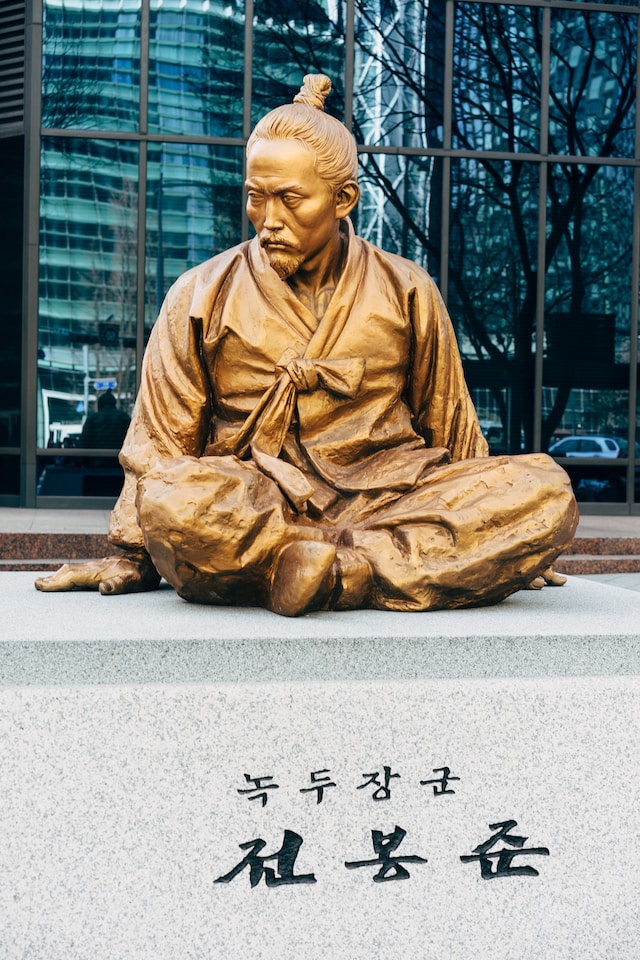
Seoul, South Korea
Benefits of Being a Digital Nomad in Seoul
Seoul offers a multitude of benefits for digital nomads looking to live and work in this vibrant city. First and foremost, Seoul provides a fast and reliable internet connection, which is crucial for remote workers who heavily rely on a stable online connection.
With its highly developed infrastructure and modern amenities, Seoul ensures that digital nomads have access to all the resources they need to enhance their productivity.
In addition to its technological advantages, Seoul boasts a rich cultural scene that adds a unique dimension to the digital nomad experience. Immersing yourself in Korean traditions and practices allows you to expand your horizons while embracing new perspectives.
Furthermore, Seoul’s natural landscapes offer an escape from the hustle and bustle of city life, providing ample opportunities for hiking excursions and reconnecting with nature.
The city’s lively nightlife scene is another major draw for digital nomads. Whether it’s checking out trendy bars or enjoying live music performances, there are endless entertainment options available here.
Plus, it’s easy to meet like-minded individuals within the bustling social environment of Seoul.
Moreover, South Korea as a whole is known for being relatively affordable compared to other Asian countries. This means that digital nomads can make their budget stretch further without compromising on quality of life.
Additionally, Seoul offers excellent transportation connections throughout the city, making it easy to explore different neighborhoods and immerse yourself in local culture.
With top-notch healthcare services readily available in case you need them and numerous coworking spaces scattered across the city where you can connect with fellow professionals – everything aligns perfectly for your professional growth journey as well!
Lastly but not least importantly; experiencing diverse culinary delights through Korean cuisine tops off an already brimming list of benefits that come with being a digital nomad in this dynamic hotspot!
Overall when considering these advantages — including high-speed WiFi connectivity suitable working environments thriving co-working culture accessible public transport system affordable cost of living presence vibrant nightlife cultural experiences stunning natural landscapes — it’s clear that Seoul is a dream destination for digital nomads looking to live and work in an inspiring and vibrant city.
From its modern amenities to its rich cultural heritage, Seoul truly offers the best of both worlds for remote workers like you!
Public transport in Seoul
Seoul has an extensive public transportation system that is one of the best in the world. The most popular modes of transportation are the subway, buses, and taxis.
The Seoul Metropolitan Subway (Seoul Metro) is the fastest and most efficient way to get around the city. It has 22 lines and 374 stations, covering almost every corner of Seoul.
Buses are another popular option for getting around Seoul. There are hundreds of bus routes that serve the entire city. Buses are a bit slower than the subway, but they are often cheaper and more convenient.
Taxis are a good option for getting around Seoul at night or when you have a lot of luggage. Taxis are metered, so you will know how much your fare will be before you get in.
There are also a few other modes of transportation available in Seoul, such as the Seoul Metropolitan Railway (Seoul Subway Line 9), the Airport Railroad Express (AREX), and the Bundang Line.
Here are some tips for using public transportation in Seoul:
- Buy a T-money card. This is a rechargeable card that can be used on the subway, buses, and some taxis. It is much cheaper than buying single-ride tickets.
- Learn some basic Korean phrases. This will help you when you are buying tickets or asking for directions.
- Be aware of your surroundings. Pickpocketing is a common problem in Seoul, so be sure to keep your belongings close to you.
- Use the Seoul Subway app. This app is a great way to plan your trips and find out the real-time status of the trains.
Challenges and Considerations for Digital Nomads in Seoul
Living as a digital nomad in Seoul, like any other city, comes with its own set of challenges and considerations. One of the main challenges is the high cost of living. Seoul has a relatively expensive lifestyle, comparable to cities like London and Sydney.
Digital nomads need to be prepared for higher expenses in terms of accommodation, food, transportation, and entertainment.
Another consideration is adapting to the fast-paced lifestyle of Seoul. The city is known for its bustling streets and crowded public transportation system. Navigating through the busy streets can be overwhelming at times.
However, it’s important to note that Seoul also offers an efficient public transport network that makes getting around easier.
Language barrier can also pose a challenge for English-speaking digital nomads in Seoul. While many younger Koreans speak English to some extent, not everyone does. It’s advisable to learn basic Korean phrases or use translation apps when interacting with locals or dealing with day-to-day tasks.
Seoul’s work culture may differ from what digital nomads are accustomed to back home. There is often an expectation for long working hours in traditional office settings which may not align with the remote work lifestyle preferred by digital nomads.
Finding coworking spaces or cafes with reliable WiFi connections becomes crucial for maintaining productivity while enjoying the flexibility of location independence.
Lastly, socializing and building a support network can be challenging initially as a foreigner in Seoul. However, there are various expat communities and events where digital nomads can connect with like-minded individuals who understand their lifestyle choices.
Despite these challenges and considerations, living as a digital nomad in Seoul also comes with numerous benefits such as access to advanced technology infrastructure, vibrant cultural experiences, delicious food options,and opportunities for networking within South Korea’s tech scene.
Conclusion
In conclusion, Seoul is a digital nomad’s dream destination. With its thriving tech scene, vibrant culture, and delicious food options, it offers an exciting and unique experience for remote workers.
Although the cost of living may be higher compared to other cities in South Korea, the benefits of living and working in Seoul make it worth it. So pack your bags, grab your laptop, and get ready to explore this dynamic city as a digital nomad!
FAQs
1. What are some popular coworking spaces for digital nomads in Seoul, South Korea?
Some popular coworking spaces for digital nomads in Seoul include WeWork, SparkPlus, and Fastfive.
2. Is it easy to find reliable internet connections in Seoul as a digital nomad?
Yes, Seoul is known for its fast and reliable internet connections. Many cafes, coworking spaces, and accommodations offer high-speed Wi-Fi services.
3. What are the best neighborhoods to live in as a digital nomad in Seoul?
Gangnam, Hongdae, Itaewon, and Yeouido are some of the best neighborhoods for digital nomads in Seoul. These areas have a vibrant atmosphere with plenty of cafes, restaurants, and amenities catering to remote workers.
4. Are there any visa requirements for digital nomads staying long-term in Seoul?
Visa regulations can vary depending on your nationality and the length of your stay. As a general rule, if you plan to stay longer than 90 days or engage in work activities while in South Korea as a digital nomad, it is advisable to research visa options such as obtaining an E-7 (Designated Activities) visa or consulting with an immigration lawyer for guidance on legal requirements.
FAQ
1. What is the cost of living in Seoul?
The cost of living in Seoul can vary depending on your lifestyle. Rent for a studio apartment in the city center can range from around $700 to $1,500 per month. Eating out at local restaurants can cost around $5 to $10 per meal, while groceries can cost approximately $200 to $300 per month. Overall, the cost of living in Seoul can be considered moderate to high.
2. How do I obtain a visa to enter South Korea?
To enter South Korea, you will typically need a visa. The requirements for obtaining a visa vary depending on your nationality and the purpose of your visit. It is recommended to check with the South Korean embassy or consulate in your country for specific visa requirements. Common types of visas include tourist visas, work visas, and student visas.
3. What are some popular areas to stay in Seoul for digital nomads?
Seoul offers several popular areas for digital nomads to stay. Gangnam, Hongdae, and Itaewon are all vibrant neighborhoods with a good mix of coworking spaces, cafes, and entertainment options. These areas are well-connected to public transportation and offer a great balance between work and leisure.
4. What is the public transportation like in Seoul?
Seoul has an efficient and extensive public transportation system. The subway is the most popular mode of transportation, covering most parts of the city. Buses and taxis are also widely available. The transportation system is known for its reliability, cleanliness, and affordability, making it easy for residents and visitors to navigate the city.
5. How is the nightlife in Seoul?
Seoul is famous for its vibrant nightlife. There are countless bars, clubs, and lounges catering to different tastes and preferences. Areas like Gangnam, Hongdae, and Itaewon are particularly known for their buzzing nightlife scenes. Whether you enjoy dancing the night away or relaxing with a few drinks, Seoul has plenty of options to offer.
6. What are some must-try street foods in Seoul?
Seoul is a food lover’s paradise, especially when it comes to street food. Some popular street foods to try include tteokbokki (spicy rice cakes), mandu (dumplings), odeng (fish cake skewers), and hotteok (sweet pancakes).
Where to stay in Seoul
When considering where to stay in Seoul, South Korea, you have several vibrant neighborhoods to choose from, each offering its own unique atmosphere and attractions. Here are some popular areas to consider:
1. Gangnam: Located in the southern part of Seoul, Gangnam is a bustling district known for its modernity, upscale shopping, and vibrant nightlife. It offers a wide range of accommodation options, from luxury hotels to budget-friendly guesthouses.
Gangnam is also well-connected by public transportation, making it convenient for exploring other parts of the city.
2. Myeongdong: Situated in the heart of Seoul, Myeongdong is a popular shopping district known for its trendy fashion boutiques, street food stalls, and lively atmosphere. It’s a great area to stay if you want to be in the midst of the city’s shopping and entertainment scene. Myeongdong has a mix of hotels, hostels, and guesthouses catering to different budgets.
3. Hongdae: Located near Hongik University, Hongdae is known for its youthful energy, art scene, and vibrant nightlife. It offers a wide range of entertainment options, including live music venues, street performances, and trendy cafes. Hongdae has a good selection of hostels, guesthouses, and budget-friendly accommodations popular among young travelers.
4. Insadong: If you’re interested in traditional culture and arts, consider staying in Insadong. This neighborhood is known for its traditional tea houses, art galleries, and souvenir shops. It offers a more relaxed atmosphere compared to other bustling districts. Accommodation options in Insadong include guesthouses and boutique hotels.
5. Itaewon: Itaewon is a multicultural neighborhood known for its international dining scene, diverse entertainment venues, and vibrant nightlife. It’s a popular area among expatriates and travelers seeking a more cosmopolitan atmosphere. Itaewon offers a mix of accommodations, including hotels, hostels, and guesthouses.
6. Jongno: Located in the central part of Seoul, Jongno is known for its historical sites and traditional architecture. It’s home to attractions like Gyeongbokgung Palace and Bukchon Hanok Village. Jongno offers a range of accommodations, including traditional hanok guesthouses and modern hotels.
These are just a few of the many neighborhoods in Seoul worth considering. The choice of where to stay depends on your preferences, budget, and the kind of experience you want to have in the city. Consider factors such as proximity to attractions, accessibility to public transportation, and the atmosphere that suits your interests.
